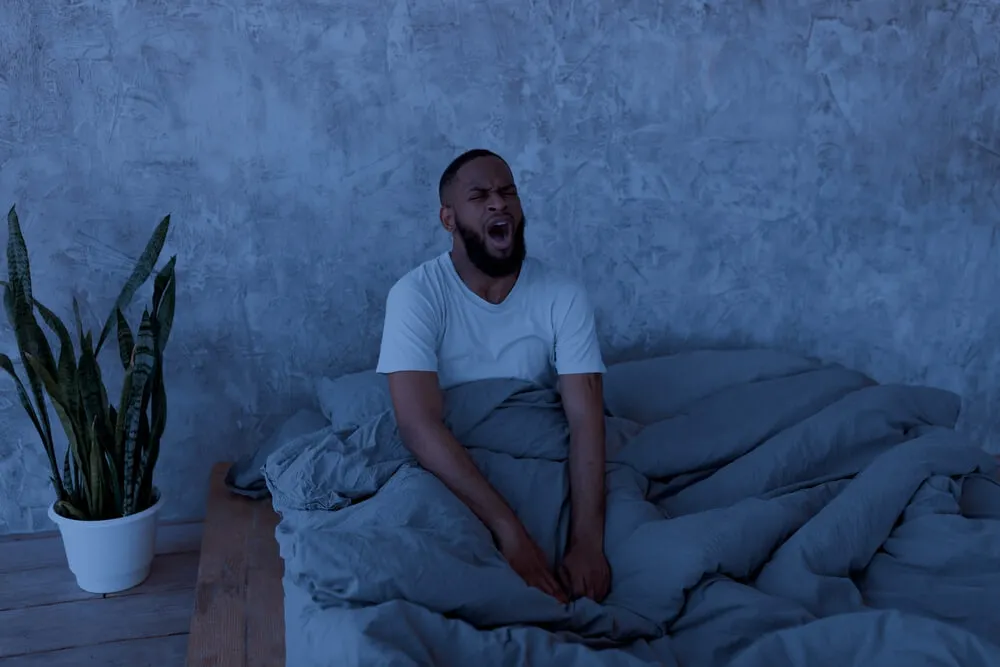Hidden Effects of Sleep Deprivation Uncovered

The Unseen Toll of Sleep Deprivation
Ever felt like you’re dragging yourself through the day, battling fatigue while trying to keep your eyes open? You’re not alone. Sleep deprivation is more common than you might think, and its hidden effects can be downright shocking. From your mood to your productivity, the repercussions of not getting enough shut-eye can ripple through every aspect of your life. Let’s dive into the unseen consequences of sleep loss and uncover how it affects your mental and physical health.
Mental Health: The Silent Struggle
When you think of sleep deprivation, you might picture someone yawning through a boring meeting. But the truth is, the effects run much deeper. Lack of sleep can lead to significant mental health issues, including anxiety and depression. Studies have shown that people who consistently skimp on sleep are more likely to experience mood swings and irritability.
Imagine waking up feeling like a zombie, only to find that your patience is wearing thin by mid-morning. That’s the reality for many. The brain needs sleep to process emotions and maintain a stable mood. Without it, you’re not just tired; you’re emotionally vulnerable.
- Key Effects on Mental Health:
- Increased anxiety levels
- Heightened irritability
- Greater risk of depression
Physical Health: More Than Just Tiredness
Sleep deprivation doesn’t just mess with your mind; it wreaks havoc on your body too. Chronic fatigue can lead to serious health risks, including obesity, diabetes, and cardiovascular disease. When you’re sleep-deprived, your body struggles to regulate hormones that control appetite, leading to unhealthy cravings and weight gain.
Moreover, lack of sleep can weaken your immune system, making you more susceptible to illnesses. It’s a vicious cycle: the less you sleep, the more your body suffers, and the harder it becomes to get the rest you need.
- Physical Health Risks Include:
- Weakened immune response
- Increased risk of chronic diseases
- Weight gain and metabolic issues
Productivity: The Hidden Cost
Let’s face it: in today’s fast-paced world, productivity is king. But when you’re running on empty, your ability to focus and perform at your best takes a nosedive. Sleep deprivation can lead to decreased cognitive function, making it harder to concentrate and solve problems effectively.
Have you ever found yourself staring blankly at your screen, unable to string together a coherent thought? That’s your brain begging for rest. The good news? Improving your sleep hygiene can lead to significant boosts in productivity.
- Tips to Enhance Productivity Through Better Sleep:
- Stick to a consistent sleep schedule.
- Create a calming bedtime routine.
- Limit screen time before bed.
Stress Management: Finding Balance
With the pressures of work, family, and life in general, stress is an ever-present companion. But did you know that sleep deprivation can exacerbate stress? When you’re tired, your body produces more cortisol, the stress hormone, which can lead to a cycle of anxiety and sleeplessness.
To break this cycle, it’s crucial to prioritize sleep as part of your stress management strategy. Incorporating relaxation techniques, such as meditation or yoga, can help you unwind and prepare for a restful night.
Wellness Tips for Better Sleep Quality
So, how can you combat the hidden effects of sleep deprivation? Here are some actionable wellness tips to help you improve your sleep quality:
- Establish a Sleep Routine: Go to bed and wake up at the same time every day.
- Create a Sleep-Inducing Environment: Keep your bedroom dark, cool, and quiet.
- Limit Caffeine and Alcohol: Both can disrupt your sleep cycle.
- Practice Relaxation Techniques: Engage in activities like reading or gentle stretching before bed.
Final Thoughts: Embracing Rest for a Healthier Life
In wrapping up, it’s clear that the hidden effects of sleep deprivation can significantly impact your life. From mental health struggles to physical health risks and decreased productivity, the stakes are high. Prioritizing sleep isn’t just about feeling rested; it’s about embracing a healthier, more balanced life.
By taking actionable steps to improve your sleep hygiene, you can reclaim your energy, boost your mood, and enhance your overall well-being. Remember, a good night’s sleep is not a luxury; it’s a necessity.





